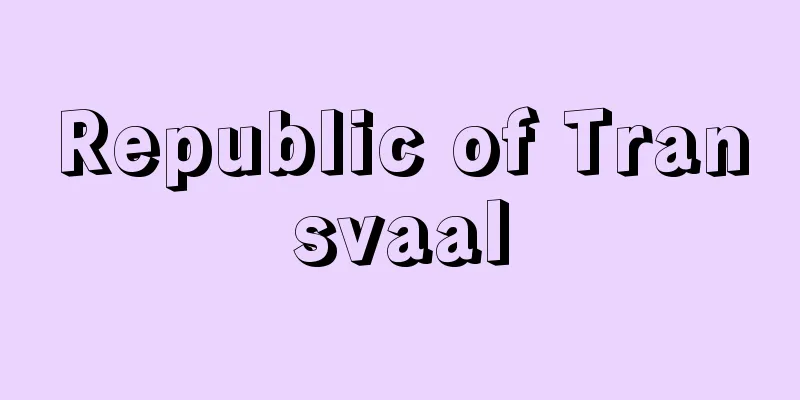Status - Chii (English spelling) status

|
A certain position in the hierarchical structure of a group or society. Those who occupy that position are entitled to a certain distribution of social resources. In any society, some form of hierarchical structure is created among the people living there, and social order is maintained through this structure. Some hierarchical structures are created based on relatively simple and clear criteria such as gender and age, but generally hierarchical structures are subdivided and take on complex and subtle forms. [Kohei Homma] Rights, Obligations and RolesOriginally, status was used as a legal concept that determined the scope of rights and obligations, and indicated the qualifications that were essential for living in society. In the 19th century, the old social order in Europe changed drastically, which had various effects on people's status. In Japan, too, the Meiji Restoration caused the collapse of the existing status order, and people who held high status experienced the loss of the privileges and honor they had enjoyed, while people who held low status were able to believe in the possibility of their destiny opening up. With the progress of industrialization, the erosion of such privileges and honor has progressed further, and status can no longer be viewed as a fixed legal issue. A status, which indicates a position in the social structure, clearly sets out the rights and obligations that define that position, as well as the framework of expectations regarding role behavior, regardless of the personal qualities of the people who occupy that position. At the same time, the fact that a status is determined indicates that the person who occupies that position claims to gain social respect by having positive privileges, or accepts that he or she will be the subject of social contempt by having negative privileges, and that this fact is socially confirmed. Therefore, occupying a certain status requires not only that the person who occupies that position claims it, but also that the people around him or her accept that claim. [Kohei Homma] Status and symbolsStatus can be broadly divided into two categories based on the factors that determine it. One is called ascribed status, which is determined by what people are born with. It is based on gender, race, lineage, family background, inheritance, etc., and determines people's basic lifestyle. The other is called achieved status, which is determined by what can be acquired as a result of personal effort or through good fortune. It includes a variety of factors such as educational level and occupation, and is crucial in living a social life. Whether innate or acquired, a status symbol is something used by individuals or groups who occupy a certain status to display the superiority that comes with that status. Symbols can range from behavioral patterns such as speech and etiquette, to systems such as ranks and titles, to badges, clothing, and other things that have been given meaning, and the more difficult a status symbol is to obtain, the greater its usefulness. [Kohei Homma] Status and groupPeople who occupy similar status tend to form status-based groups. By becoming members of a group, people not only develop a sense of unity with each other by sharing a common lifestyle and interests, but also organize to protect the privileges they have been given and to seek higher status in order to enjoy a better life. [Kohei Homma] "Introduction to Cultural Anthropology" by R. Linton, translated by Shimizu Ichitaro and Inukai Yasuhiko (1952, Tokyo Sogensha) [Reference] | | | |Source: Shogakukan Encyclopedia Nipponica About Encyclopedia Nipponica Information | Legend |
|
集団や社会の階層構造上の特定の位置を示すもの。その地位を占める者は特定の社会的資源の配分にあずかる。どのような社会でも、そこに生活する人々の間には、なんらかの形で階層構造がつくられており、それを通じて社会秩序を維持している。性、年齢といった比較的単純明瞭(めいりょう)なものを基準としてつくられる階層構造もあるが、一般に階層構造は細分化されており、かつ複雑微妙な形をとっている。 [本間康平] 権利・義務・役割元来、地位とは権利と義務の範囲を決める法制上の概念として用いられ、社会生活を営むうえで欠くことのできない資格要件を示すものであった。19世紀に入り、ヨーロッパでは旧来の社会秩序が大幅に変わり、人々の地位にさまざまな影響を及ぼした。日本でも、明治維新によって既存の身分秩序が崩壊したため、高い地位にいた人々は、それまでに享受していた特権や名誉が失われていくことを経験したし、低い地位を占めていた人々は、自分たちの運命が開けていく可能性を信じることができた。工業化の進展とともに、このような特権や名誉の侵食がいっそう進んでおり、地位を法制上の問題として固定的にとらえることはできなくなっている。 社会構造上の位置を示す地位には、地位を占めている人々の個人的資質とは無関係に、その位置を規定する権利と義務、および、役割行動についての期待の枠組みがはっきりと打ち出されている。同時に、地位が確定しているということは、その地位を占める当事者がプラスの特権をもつことによって社会的尊敬をかちとることを主張し、あるいは、マイナスの特権をもつことによって社会的蔑視(べっし)の対象となることを受認するとともに、その事実が社会的に確認されていることを示す。したがって、ある地位を占めるということは、その地位を占める当人が主張するだけでなく、人々がその主張を容認しているという事実が不可欠である。 [本間康平] 地位とシンボル地位は、地位を規定する要因によって二つに大別される。一つは生得的地位ascribed statusとよばれるもので、人々が生まれながらにしてもっているものを規定要因とする。性や人種、あるいは血統、家柄、遺産などに基づくもので、人々の基本的な生活様式を規定する。もう一つは獲得的地位achieved statusとよばれるもので、個人的な努力の結果として、あるいは幸運などによって手に入れることのできるものを規定要因とする。教育程度や職業などさまざまなものが含まれ、社会生活を営むうえで決定的な意味をもつ。 生得的地位であれ獲得的地位であれ、特定の地位を占める個人や集団がその地位に基づく優越性を表示するために使われるものが地位のシンボルである。シンボルとなるものは、ことば遣いや礼儀作法といった行動様式から、位階勲等や役職などの制度、記章や服装をはじめとする意味を付与されたものなどさまざまで、手に入れることがむずかしければそれだけシンボルとしての効用は大きい。 [本間康平] 地位と集団同じような地位を占める人々は地位を契機とする集合体を形成する傾向がある。集合体の一員になることによって、人々は生活様式や利害関係について共通の認識をもち、互いに一体感を育てるだけでなく、自分たちに与えられている特権を守るとともに、よりよい生活を享受するために、より高い地位を求めて組織活動を展開している。 [本間康平] 『R・リントン著、清水幾太郎・犬養康彦訳『文化人類学入門』(1952・東京創元社)』 [参照項目] | | | |出典 小学館 日本大百科全書(ニッポニカ)日本大百科全書(ニッポニカ)について 情報 | 凡例 |
Recommend
Bell, Charles
…Charles Bell (1774-1842) discovered in 1811 that...
Phlegm
Concept/Mechanism Even healthy individuals produce...
Double structure - 20 buildings
This term, which describes the structural charact...
Primary biliary cirrhosis
…80% of cases of hepatocellular carcinoma are acc...
Business - Business
…A freshwater fish of the family Leptidae in the ...
Shrimp net - Ebiami
...During the day, they hide on rock shelves, but...
Garden Fire - Niwabi
A bonfire in a garden. Especially in the gardens o...
Blue-capped parakeet - Blue-capped parakeet
...During the breeding season, they dig burrows i...
Mitsusuke Akamatsu
Shugo of Harima, Bizen, and Mimasaka provinces in...
Labeled Compounds - Leucanthemum vulgare
A compound in which some of the elements that mak...
Allactaga sibirica (English spelling) Allactaga sibirica
...They feed on seeds, juicy plants, and insects,...
Yoshizawa Kengyo
A performer and composer of Ikuta-ryu koto music ...
Sovkhoz
Also read as sovkhoz. A large state-run farm in th...
Constitutional Evolution - Kenpouhensen (English spelling) Verfassungswandlung [Germany]
There are two usages: (1) when it means a change i...
Goshiki [Hot Spring] - Goshiki
This hot spring is located in Itaya, Yonezawa City...

![Shippou [town] - Shippou](/upload/images/67cbc54519ec2.webp)







